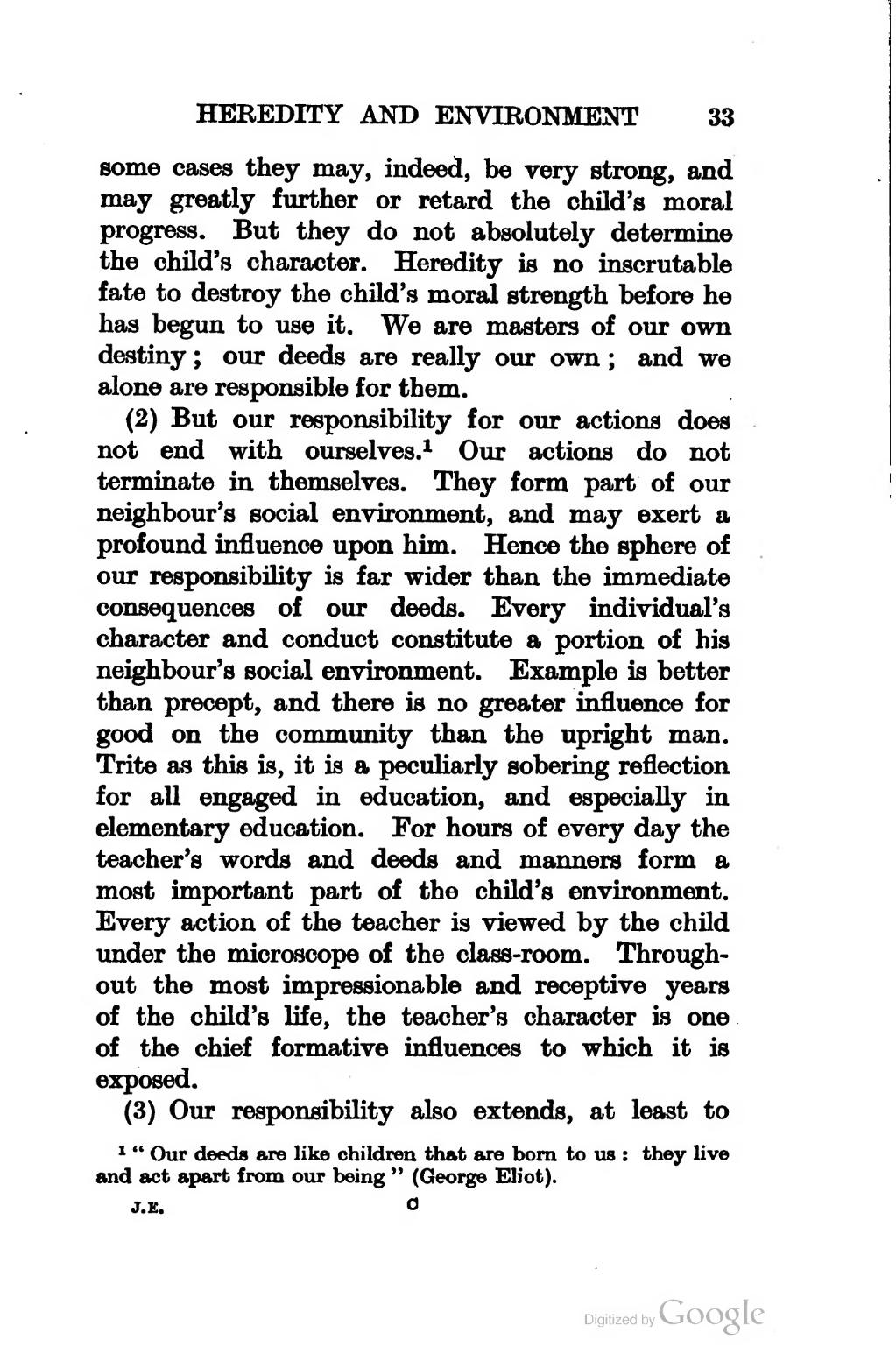some cases they may, indeed, be very strong, and may greatly further or retard the child's moral progress. But they do not absolutely determine the child's character. Heredity is no inscrutable fate to destroy the child's moral strength before he has begun to use it. We are masters of our own destiny; our deeds are really our own; and we alone are responsible for them.
(2) But our responsibility for our actions does not end with ourselves.[1] Our actions do not terminate in themselves. They form part of our neighbour's social environment, and may exert a profound influence upon him. Hence the sphere of our responsibility is far wider than the immediate consequences of our deeds. Every individual's character and conduct constitute a portion of his neighbour's social environment. Example is better than precept, and there is no greater influence for good on the community than the upright man. Trite as this is, it is a peculiarly sobering reflection for all engaged in education, and especially in elementary education. For hours of every day the teacher's words and deeds and manners form a most important part of the child's environment. Every action of the teacher is viewed by the child under the microscope of the class-room. Throughout the most impressionable and receptive years of the child's life, the teacher's character is one of the chief formative influences to which it is exposed.
(3) Our responsibility also extends, at least to
- ↑ "Our deeds are like children that are born to us: they live and act apart from our being " (George Eliot).
